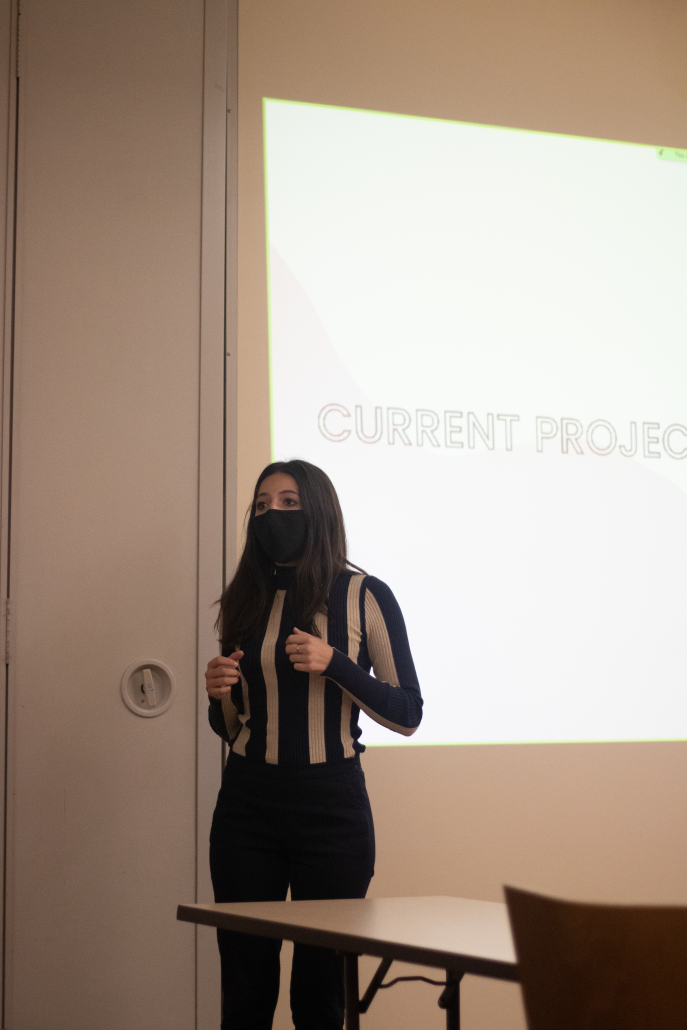USG discusses work-study, sustainability projects

During the Undergraduate Student Government meeting Tuesday, senators discussed work-study alternatives for undocumented students and sustainability projects.
USG president Alexis Areias covered the progress of several different projects in her presentation, including a push to provide free menstrual care products on campus and installing speed bumps on West 28th St.
Areias’ presentation included a progress update on the project to provide work-study alternatives to undocumented students.
The project, which is a collaboration with the affordability and basic needs committee and Sydney Brown, chair of the external affairs committee, aims to address the disparity in undocumented students’ financial aid options as they can’t receive federal funding for work-study programs, Areias said in an interview with the Daily Trojan.
Areias next detailed the current status of USG’s sustainability initiative, which seeks to ban single-use plastics and expand the current number of trash cans on campus.
The specifics of the ban are not finalized, as some single-use plastics such as straws could be an accessibility concern, Areias said.
“This would essentially be things like water bottles that you throw away, tupperware, things of that sort,” Areias said. “It’s a big goal and it’ll likely take time, but that’s definitely one of our big priorities for this year.”
Areias also hopes to move forward with a project to install speed bumps on West 28th St., citing the increase in traffic collisions involving scooters and pedestrians.
“I actually have had three friends who have been hit by scooters on 28th Street and beyond,” Areias said. “It’s a really huge problem. We see cars flying down for some reason, particularly on that stretch.”
Senator Nivea Krishnan next presented an itemized list of several of her projects, including an initiative to provide resources for students looking for housing in the central Los Angeles area.
In an interview with the Daily Trojan, Krishnan said the goal of the project is for students to have support from the University when looking for affordable housing options, primarily through connections with local businesses.
“There is a lot of existing information on them,” Krishnan said. “We’re trying to figure out what current information is out there and what current efforts there are so that we can work to promote these efforts and if they need more support in any capacity.”
Krishnan hopes the project supplements the existing resources on campus so that students are aware of what opportunities are available for viable housing.
At the end of the meeting, Anthony Khoory, a junior majoring in sociology, gave an update on the Middle Eastern and North African Center, which will apply for cultural assembly status in Spring 2022. The center is currently connecting with students through on-campus events, including an upcoming hafl (Arabic for party) in November sponsored through the Arabic Club.
“We have a lot of smaller … organizations, so there’s Lebanese Club, there’s Saudi Student Association, there’s Persian Student Organization,” Khoory said in an interview with the Daily Trojan. “We don’t even know all of them because we’re not connected. We don’t have an overall assembly to connect [us].”
Khoory said the benefits of becoming a student assembly through USG include not only connections among smaller Recognized Student Organizations but also access to USG’s resources, money and policies and “keeping this [community] alive for generations to come.”
“It’s like any other racial, ethnic identity group, so it doesn’t make sense why there shouldn’t be one for us too,” Khoory said. “We don’t want to be invisible.”

